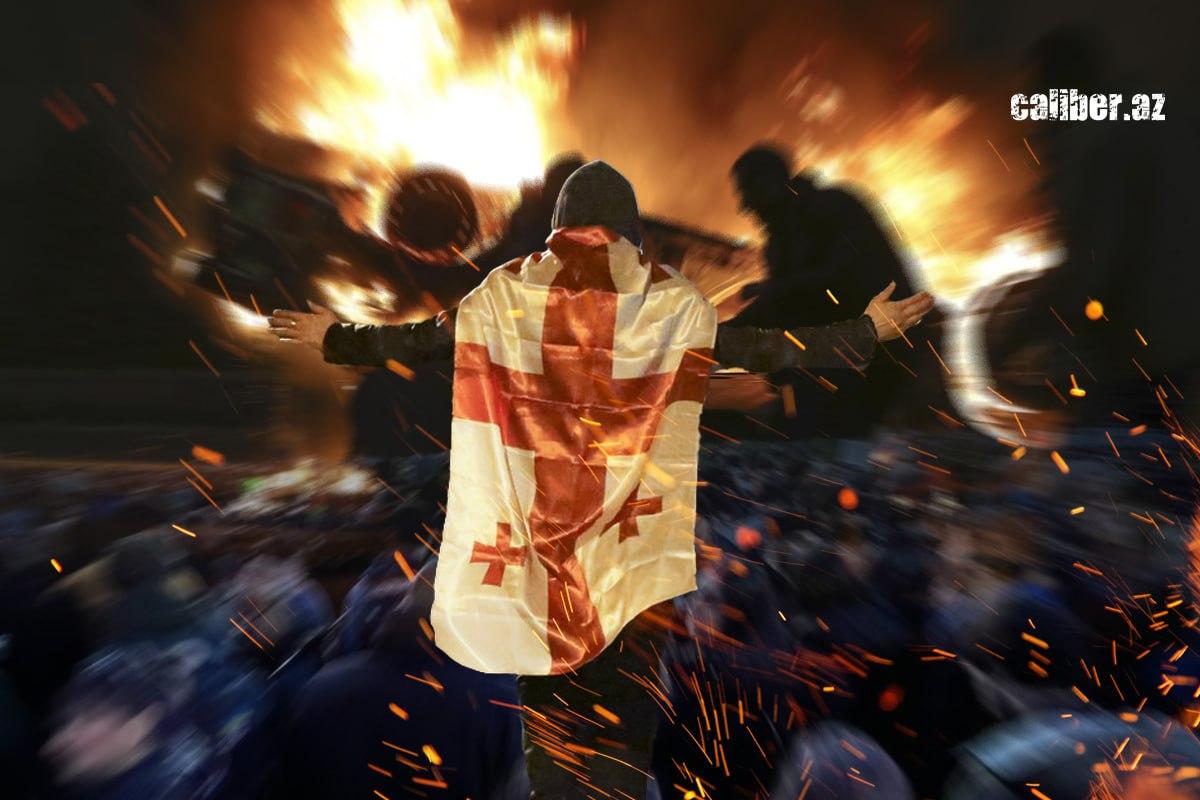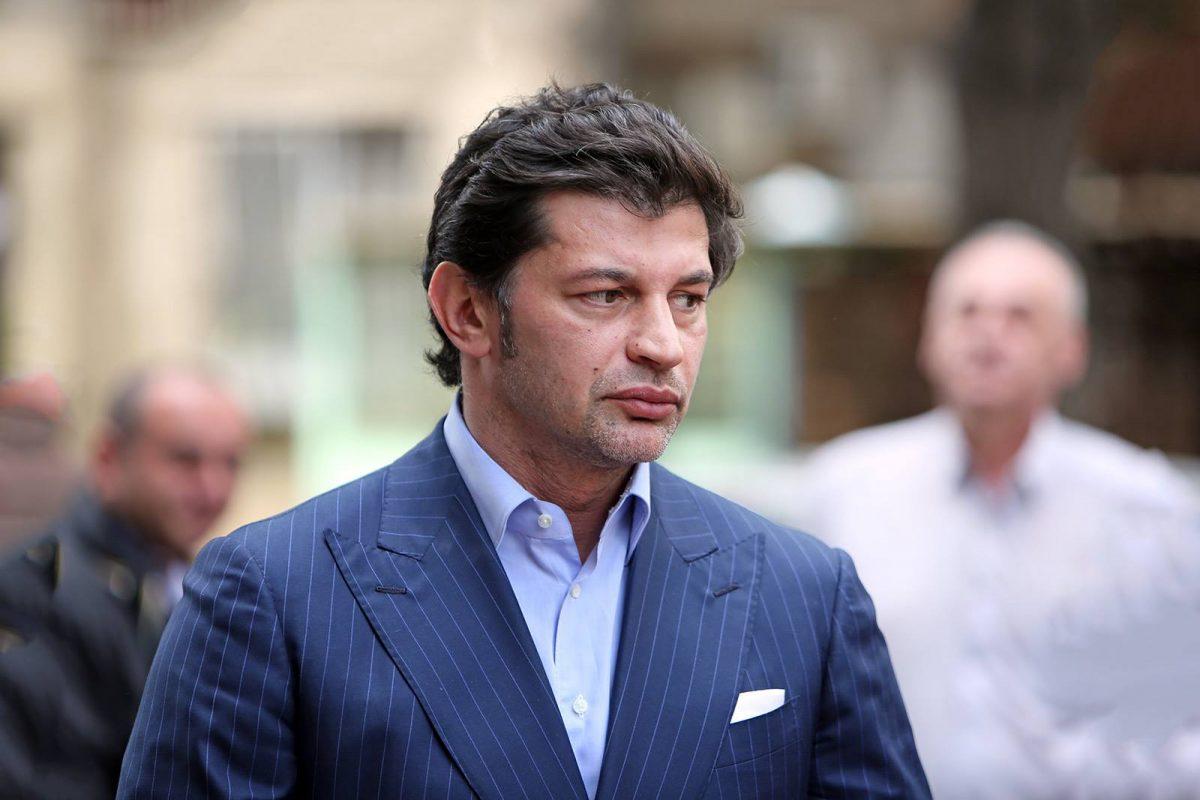The Georgian dream of the West Brussels and Washington stoke the flames
After careful consideration of Georgia's ruling party's stance "On Transparency of Foreign Influence", the collective West (an apt phrase in this context) has responded with what could be seen as an asymmetric blow against Georgia.
Thus, the news came from Europe that the EU leaders agreed to stop the process of Georgia's accession to the European Union, motivating their decision by the fact that "EU leaders are unclear about the true intentions of the current Georgian authorities". EU Ambassador to Georgia Paweł Herczyński told reporters. " “The Law on Transparency of Foreign Influence is a clear backslide on nine steps, and the anti-Western, anti-European rhetoric is fully incompatible with the stated aim of joining the European Union. Regrettably, Georgia’s EU accession process is stopped for now – this has been decided by EU leaders during the last European Council. It is sad to see EU-Georgia relations at such a low point, when they could have been at an all-time high," the Ambassador said.
Herczyński expressed hope that "after the elections in Georgia in October, the newly-formed government, whoever forms the government, will restart serious work towards EU integration." He also said that the EU has frozen €30 million allocated for the Georgian Defense Ministry.
The Americans joined the Europeans in their stance. At a briefing for foreign journalists, Michael Carpenter, senior director for Europe at the National Security Council (NSC) of the White House, stated that the US has begun a review of all cooperation programs with Georgia.
"We hope to see a change in direction, strategic direction, from the Georgian Government. But right now all of our programs with Georgia are under review," he said.
Additionally, last week, the US Department of Defense announced that the joint US-Georgia military exercises Noble Partner, scheduled for the summer of 2024, are being postponed indefinitely due to the review of strategic relations. The US Department of Defense justified the decision to postpone the exercises by noting that the Georgian authorities had claimed the US and the West were attempting to open a "second front" to increase pressure on Russia in connection with the situation in Ukraine. The American side asserts that such statements are false. In light of this, the US authorities decided that now is not the right time to conduct large-scale military exercises in Georgia.

On the ground, the West's actions were supported by the President of Georgia and pro-Western advocate Salome Zourabichvili. "The indefinite postponement of the Georgian-American military exercises Noble Partner threatens Georgia's defence capability," Zourabichvili told journalists, adding that "this harms our strategic partnership with the US. This poses a great threat to our defence capability and everything our army has been built upon so far. And all this is happening because our government did not understand who its friends are and who its enemies are." She warned that there would be no peace in the country if it finds itself in isolation, without partners, and there would be no resources to strengthen the army.
One might ask, did Georgia's strategic partnership with the US help during the war in August 2008, when Tbilisi's attempt to restore sovereignty over the Tskhinvali region led to Russian military intervention? Another question to consider is how the strategic alliance between Ukraine and the US is helping it restore its territorial integrity. It is clear even to a child that Western assistance to Ukraine serves a single purpose — to prolong the conflict and slowly deplete Russia's military potential, rather than to help Kyiv regain control over the lost territories.
In this sense, the Georgian government has a double example — it simply must learn from both its own and others' mistakes. The current Georgian government is pursuing the only correct course in the given circumstances: strengthening sovereignty and, consequently, maintaining equal distance and equal dialogue with all centres of power. In the context of this policy, it is particularly important to highlight the declaration of a strategic partnership with the People's Republic of China in July 2023. Incidentally, this fact must have gotten on the White House's nerves no less than the adoption of the law on foreign agents.
I dare to suggest that the advancement of the Georgian national football team from the qualifying round to the final tournament of the European Championship, and their successful performance there (they reached the Round of 16), somewhat reduced the tensions between the ruling party and the protesting youth. After all, the Georgian national team is the pride of the "Georgian Dream" party, especially considering that the party's Secretary General is the famous footballer, Milan star, and current mayor of Tbilisi, Kakha Kaladze. And in these circumstances, the West decided to artificially increase the level of confrontation. The references to the parliamentary elections in the statements of officials from Brussels and Washington are a clear message to the Georgian voters — you can fix everything by ousting the ruling party from the parliament. And then (when you prove your loyalty to us), we might start considering possible steps toward Georgia's hypothetical accession to the EU again.

By taking such steps, they aim to provoke irritation in Georgian society towards their own government, implying that it is their fault that we do not want to see Georgia as part of the West. In reality, Georgia has never been seen as part of the West, and the goal of Washington and Brussels, as in the case of Ukraine, is to use Tbilisi as a point of tension for Russia by making enticing promises. The task of the Georgian ruling elite is to use all available tools to portray the West's actions as hostile to Georgian statehood, as they indeed are.
A hot fall awaits Georgia. We wish the Georgian people strength and wisdom to withstand the psychological attack from Western countries, to see behind the noise of populist statements the predatory grin of neocolonialism, and to make a choice in favour of true sovereignty, voting not against Russia and not for the West, but only for Georgia. The formation of a positive agenda for the protection of sovereignty and its proper positioning is the main task for the Georgian government.








